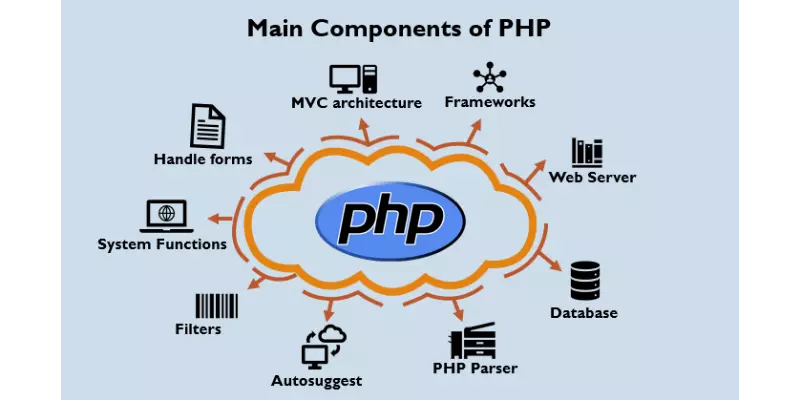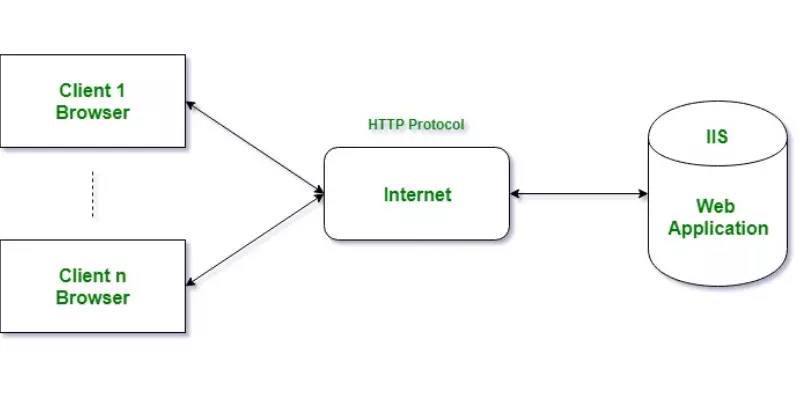ASP.NET vs PHP in 2025: Choosing the Right Framework for Modern Web and Mobile Development
Intro:
In today’s digital-first landscape, choosing the right backend framework is critical—whether you’re developing mobile apps or web platforms for B2B or B2C users in the USA. As of 2025, both ASP.NET Core and PHP have matured significantly, offering powerful ecosystems for cloud-connected, mobile-first applications. This updated comparison focuses on modern development workflows, SEO best practices, mobile trends, and compliance with Google’s updated E-E-A-T standards to help you make an informed decision.
1. What Are ASP.NET and PHP?
ASP.NET Core is Microsoft’s open-source, cross-platform framework built in C#. It integrates deeply with Azure, Visual Studio, and .NET tooling—ideal for enterprise-scale mobile apps, APIs, and real-time systems. On the other hand, PHP has been a staple in web development, powering dynamic websites, content platforms like WordPress, and lightweight iOS and Android app backends via frameworks like Laravel.
2. Performance & Scalability
In 2025, performance is everything. ASP.NET Core benefits from JIT/AOT compilation, asynchronous programming, and optimized memory usage—essential for high-traffic mobile app backends and real-time APIs. PHP 8.3’s JIT enhancement narrows the gap but still falls short under enterprise loads. If you’re building scalable Android apps or heavy API-driven experiences, ASP.NET has the edge.
3. Security & Trust
Security matters more than ever. ASP.NET offers built-in protection—like integrated authentication, data encryption, and features that tie into Azure Active Directory and Microsoft Defender—making it a smart choice for mobile-first solutions in finance, healthcare, and fintech. With PHP, frameworks like Laravel improve baseline security, but developers must implement more manual best practices—raising trustworthiness risk for mission-critical mobile apps.
4. Cost, Hosting & Cloud Strategy
PHP remains budget-friendly, supported widely on shared hosting. That affordability appeals to startups building MVPs or small-scale web projects. Meanwhile, ASP.NET Core now runs seamlessly on Linux and Docker, enabling more cost-effective cloud deployment—especially when leveraging Azure’s enterprise features. For long-term cloud-native mobile-app infrastructures, ASP.NET Core pays off.
5. Mobile-First Integration
Modern development is API-first. ASP.NET powers efficient RESTful services for Android and iOS apps, and supports cross-platform frameworks like React Native, Flutter, and .NET MAUI seamlessly. PHP can deliver functional APIs, but may struggle with performance-intensive features—like push notifications, live chat, or location services.
6. Developer Experience & Ecosystem
ASP.NET shines with Visual Studio, Azure DevOps, GitHub Copilot, and automated CI/CD pipelines—facilitating productivity and enterprise-grade DevSecOps workflows. PHP brings strengths in community, Laravel ecosystem, and open-source flexibility—but lacks some of the mature tooling and automated deployment systems of the .NET world.
7. Use-Case Summary
ASP.NET Core: Enterprise-scale websites, secure mobile app backends, cloud-native digital platforms
PHP (Laravel, WordPress): Budget-conscious projects, CMS-driven websites, MVP platforms
Hybrid: Start with PHP for fast prototyping, then migrate to ASP.NET Core for scale, security, and mobile features
Final Verdict
Both technologies remain valuable in 2025, but your choice depends on your project’s scale, mobile strategy, and long-term roadmap. Opt for ASP.NET Core when building mobile-first applications with high security and cloud integration. Choose PHP (Laravel/WordPress) for cost-effective web solutions or rapid MVP launches. For high-impact B2B/B2C mobile platforms, working with a firm skilled in both ASP.NET and modern mobile technologies ensures optimal scalability, E-E-A-T credibility, and future-proof architecture.
Choosing the right backend framework is one of the most important decisions when developing high-performance web or mobile applications. In 2025, the debate between ASP.NET and PHP continues—especially as both technologies have evolved significantly with support for progressive web apps, API-driven development, and mobile-first architecture. Whether you’re building enterprise-grade mobile apps or lightweight web platforms, your backend stack can affect speed, scalability, and security.
Overview: What Are ASP.NET and PHP?
ASP.NET is Microsoft’s open-source, cross-platform framework designed for building enterprise-level websites, APIs, and mobile backends using C#. It offers deep integration with the Microsoft ecosystem (Azure, Visual Studio, SQL Server), making it a preferred choice for businesses building scalable cloud-connected mobile apps.
PHP, short for Hypertext Preprocessor, is a long-standing open-source scripting language widely used for web development. Popular for CMS platforms like WordPress and Laravel-based custom solutions, PHP remains a flexible and cost-effective solution for developers building dynamic websites and lightweight mobile APIs.
Performance and Scalability in 2025
In today’s high-demand digital environment, performance and scalability are critical. ASP.NET Core, with its just-in-time (JIT) and ahead-of-time (AOT) compilation, delivers faster execution and lower memory usage—especially for cloud-based and real-time mobile apps. It supports asynchronous programming, essential for applications with thousands of concurrent users.
PHP 8.3 introduces JIT compilation, improved syntax, and better memory management. While it narrows the performance gap with ASP.NET, it still lags slightly when handling complex enterprise workloads or heavy mobile API traffic.
Verdict: ASP.NET offers better performance for enterprise-grade applications and apps with complex logic or high user volumes.
Security: Which Framework Is More Secure?
Security is non-negotiable in 2025. ASP.NET leads in this area with features like built-in authentication, data encryption, and integration with Microsoft Defender and Azure Active Directory. It’s ideal for fintech, healthcare, and other sensitive sectors where mobile and web apps must meet strict compliance.
PHP has improved its security tools, especially when using frameworks like Laravel. However, PHP apps rely more on manual security best practices and third-party libraries, increasing the risk of configuration errors.
Verdict: ASP.NET is more secure out-of-the-box and integrates more robustly with enterprise-grade security ecosystems.
Cost and Hosting Flexibility
PHP has long been the go-to for budget-friendly development. It runs on almost every server, and shared hosting plans often include PHP by default. Developers building iOS or Android web app backends for startups or MVPs often lean on PHP for cost-effectiveness.
ASP.NET typically requires more expensive hosting (e.g., Microsoft Azure or dedicated servers), but in 2025, open-source ASP.NET Core supports Linux hosting and containerization via Docker, improving affordability.
Verdict: PHP wins for small businesses or startups with tight budgets, while ASP.NET is better suited for long-term investment and cloud integration.
Cross-Platform and Mobile App Integration
In 2025, most applications are API-driven and built with mobile-first or cross-platform strategies. ASP.NET excels at powering React Native, Flutter, and Xamarin-based apps thanks to its seamless API support, .NET MAUI framework, and high-performance RESTful services.
PHP is also API-friendly but may struggle with performance under high loads or when supporting real-time features like notifications, live chats, or GPS tracking in mobile apps.
Verdict: ASP.NET is the stronger backend for modern Android and iOS app development.
Developer Tools and Ecosystem
ASP.NET developers benefit from a rich ecosystem including Visual Studio, Azure DevOps, and GitHub Copilot for AI-assisted development. Microsoft’s push for generative AI, DevSecOps, and cloud-native architecture continues to make ASP.NET more powerful in 2025.
PHP has strong support from the Laravel ecosystem and open-source community but lacks some of the enterprise-grade automation and deployment pipelines offered by Microsoft.
Verdict: ASP.NET leads in developer productivity, DevOps readiness, and tooling.
Popular Use Cases in 2025
| Use Case | Preferred Framework |
|---|---|
| Small business websites | PHP |
| WordPress or CMS-based solutions | PHP |
| Scalable enterprise web apps | ASP.NET |
| Cloud-connected Android/iOS apps | ASP.NET |
| AI-integrated backend solutions | ASP.NET |
| E-commerce platforms | PHP (Laravel) |
Final Verdict: ASP.NET vs PHP in 2025
Both ASP.NET and PHP remain relevant in 2025, but your choice should align with your business goals and app architecture. If you’re building secure, scalable, mobile-first applications with deep cloud integration, ASP.NET is the clear winner. However, for small websites, budget-focused development, or WordPress-powered platforms, PHP still delivers great value.
For B2B or B2C organizations looking to scale digital operations and support both web and mobile applications, partnering with a development firm experienced in both ASP.NET and mobile technologies is key.
The selection of the right technology stack for the web development project has always been a challenging task. Especially to choose between the two prominent technology stacks — PHP Vs ASP.NET, specifically so because one is simply a programming language and the other is a web framework.
So, this article is definitely for you if you are the one among many who are stuck between PHP Vs Asp.NET.
Check out this detailed blog to understand the dissimilarity between the top two web development frameworks.
We will be discussing all the parameters of these two technologies in-depth and simplifying them to understand easily.
Introduction to PHP

PHP is one of the most popular server-side web development languages & PHP is the best language. In the year 1994, it was originally developed by Danish-Canadian programmer Rasmus Lerdorf.
PHP is one of the most well-liked and chosen general-purpose scripting languages to create great web applications or websites for startups, entrepreneurs, and enterprises.
You can execute tasks with PHP as any other CGI (Common Gateway Interface) program can.
The key areas of PHP script use are server-side scripting, command-line scripting, and desktop application writing.
It is also significant for collecting the form data, sending and receiving cookies, dynamic page content generating, and many more.
Let’s have a look at some insights of PHP Web Framework:
- PHP is a server-side-scripting language embedded with HTML.
- Developers use PHP majorly to manage the dynamic content database session tracking along with many other tasks.
- The PHP community is a very huge community and it has various open-source free libraries, tools, and extensions.
- PHP desegregated with various databases, such as MySQL, Oracle, Sybase, PostgreSQL, Informix, and Microsoft SQL Server.
- It holds up major protocols such as IMAP, POP3, and LDAP.
- PHP can be used on all major operating systems, including Microsoft Windows, Linux, macOS, etc.
Pros and Cons of PHP
PHP Pros
- It is open-source which means it’s free to use.
- PHP is a programing language and a framework for both
- PHP language is easy to learn
- A large community of developers across the world.
- PHP is an excellent choice for large projects like Facebook, and White house websites.
- Due to efficient communication with various database types, PHP is also a great choice for web-based scripts such as web content management systems (CMS)
- Highly scalable
- PHP web development is cost-effective, easy to learn, code, and pick up.
- Excellent performance
PHP Cons
- The programming language is generally not suitable for desktop applications.
- In comparison with the other programming languages, PHP applications tend to run slower.
- PHP allows customization which sometimes leads to bugs and poor coding.
- PHP lacks efficiency in error handling, that’s why it takes more time to detect the error.
Introduction to ASP.NET

ASP.NET is a # C-based server-side web application framework with extensions.
It is an open-source server-side web development platform created by Microsoft in the early 2000s, which allows developers to create dynamic websites.
ASP.net is popular for building highly secure web applications and as a result; you will find many top user-centric companies relying on .NET for their website.
Let’s have a look at some insights of ASP.NET Web Development Framework
- A variety of libraries and tools, also common web patterns, such as Model View Controller (MVC)
- Web-page template syntax
- The authentication system
- Editor’s extensions
This substructure allows the development of distinct types of applications including dynamic web pages, microservices, REST APIs, and real-time hubs.
Pros and Cons of ASP.Net
Pros ASP.Net
- Microsoft owns it, Microsoft has a better reputation in the market.
- ASP.NET is highly scalable and is expanding at a rapid speed, even better than PHP.
- Supports all the major programming languages and works well with both app and C#.
- Developers can trace if they made any mistake in coding before compilation.
- Loaded with plenty of tools and features to support programmers.
- ASP.NET works extremely well with windows.
- Excellent platform for enterprise application development.
- Fast development with numerous pre-loaded coding options.
- An excellent UI for developers
Cons of ASP.NET
- Microsoft owns it, Microsoft has a better reputation in the market.
- ASP.NET is highly scalable and is expanding at a rapid speed, even better than PHP.
- Supports all the major programming languages and works well with both app and C#.
- Developers can trace if they made any mistake in coding before compilation.
- Loaded with plenty of tools and features to support programmers.
- ASP.NET works extremely well with windows.
- Excellent platform for enterprise application development.
- Fast development with numerous pre-loaded coding options.
- An excellent UI for developers
PHP Vs ASP.NET: Points To Compare
Speed and performance in PHP and ASP.NET

Before we begin with the speed and the performance, let me acknowledge you with some factuality that is equally important for regulating a website’s speed.
PHP and ASP.NET websites vary just a bit concerning performance.
There’s a misconception about the speed and website performance of an application that we have been nurturing for decades is that it depends on the programming language you select.
However, this is not completely true. The performance of any framework depends on the way you write the coding.
It is better to select the programming language by analyzing its performances under different scenarios.
PHP and ASP.NET, both are equally enabled to access files and find images, and the speed of all these performances relies much on the database server, end user’s system, and bandwidth, etc.
It is a well-known fact that the speed of ASP.NET websites is better than that of PHP websites.
Also, ASP.NET allows parallel programming to support coding structures that run all the time. In contrast to that PHP doesn’t authorize threading at all.
However, the statement may not be accepted as many great websites have been built using PHP.
Market Share of PHP v/s ASP.NET

The significant difference between ASP.NET vs PHP is the utilization and market share.
According to the research, PHP has more usage popularity than ASP.NET.
The websites developed with PHP have been graded among the topmost 10k sites, topmost 100k sites, and topmost 1M sites.
Whereas ASP.NET hasn’t been awarded any titles that can beat PHP’s.
Security in ASP.Net vs PHP

Both platforms provide unique security features to the developers but in different ways.
ASP.NET comes with such a built-in security feature as SQL injection whereas PHP provides tools to structure the applications securely.
In other words, ASP.NET is mechanized and automatically does the work for you whereas PHP only comes up with the tools.
So to clear up which is better, ASP.NET or PHP security-wise, ASP.NET would be the correct choice.
Many PHP developers are provided with tools, thus resulting in app vulnerability.
Cost of ASP.Net vs PHP Web Framework

PHP is the clear winner for the reason that PHP is an open-source development framework whereas ASP.NET comes with free web hosting only.
The fee charged by Microsoft-owned ASP.NET is not high when compared to PHP’s free usage, it can make developers doubtful towards ASP.NET.
Websites Built using Asp.net and PHP

Websites that use PHP have been designated topmost as compared to ASP.NET-built websites.
Two lists of websites built using PHP or ASP.NET to differentiate the popularity
Websites Built Using PHP
- Wikipedia
- WordPress.com
- Flickr
- Yahoo!
- iStockPhoto
- Tumblr
- Mailchimp
- Baidu
Websites Built Using ASP.NET
- StackOverflow
- Microsoft
- GoDaddy
- DELL
- Visual Studio
- WildTangent
- Diply.com
- TacoBell.com
- Ancestary.com
Among these, some websites are extremely popular in both lists but the majority of famous websites are PHP developed.
Support and Resources in ASP.Net vs PHP web

PHP is open-source and its pool of developers is much greater than ASP.NET since it’s free.
The ASP.NET community consists of highly committed developers who are nurturing and helpful to their community despite the number is not as high as PHP.
In contrast to this, PHP is such a widely used language that there are lots of friendly developers active on different forums who are more than willing to offer free suggestions, guidance, or enlightenment to those who request it.
The PHP community consistently comes up with solutions to the obstacles faced during the PHP web apps development process.
Tools and Editors for ASP.Net vs PHP

PHP developers can access a bunch of functional editors.
PHP developers like to work around text editors like VIM and Notepad++, there are a couple of good and free IDEs, such as Eclipse.
ASP.NET holds a firm learning curve because of written in C# while PHP is uncomplicated and easy to learn.
However, most ASP.NET developers rely on Microsoft’s Visual Studio Editor to develop .NET applications, it is backed up by a variety of IDEs that might cost you.
ASP.NET offers piles of tools and in-built features which authorize the developers to create websites with no problems.
Platform Dependency for ASP.Net vs PHP

ASP.NET as compared to PHP does not give that freedom, as PHP is platform-independent and can run on any platform, such as Linux, UNIX, Windows, and Mac OSX.
ASP.NET runs on the Windows platform only.
It is the reason behind the large audience and powerful community of PHP.
In conclusion
We have included all the major parameters in this article and I hope the above differentiation parameters between the two languages help you choose the best one as per your needs and requirements.
Both PHP and ASP.NET have a fair share of pros, and thus it is wise to select one as per the specific requirement of your project. Make your decision wisely depending on the in-depth analysis of the differences.
But if you still can’t decide between the two, and if you need PHP and asp.net website development assistance, you can contact the Web Developer Team.
Our Web Development Team members are always ready to help you with your web app development project.
FAQs
Which technology (PHP or Asp.net) should we prefer for our application or website development project?
PHP is the language that comes with the lowest learning curve whereas ASP.NET is a fast and reliable framework to use both PHP and ASP.NET have a fair share of pros, and thus it is wise to select one as per the specific requirement of your project. But if you still can’t decide between the two, and if you need any further assistance, you can contact us.
Why use ASP.NET for web development?
Because it is reliable, fast, easy to use, free, and widely known. ASP.NET gives you full control of your development and can be used on any project big or small.
Which backend framework is best for building scalable mobile apps in 2025—ASP.NET Core or PHP?
A1: For enterprise-level mobile app backends, ASP.NET Core delivers superior performance, scalability, and security. It’s ideal for Android and iOS apps, real-time APIs, and cloud-native solutions using Azure and .NET MAUI. PHP can work, but might lag under heavy mobile loads.
Is PHP still relevant for modern iOS and Android app development?
Yes—PHP remains a solid choice for lightweight mobile API backends, especially for MVPs or CMS-driven apps using Laravel or WordPress. It’s low-cost, easy to host, and widely supported. But for complex, high-performance Android/iOS app backends, ASP.NET Core is more future-ready.
What are the top search keywords for mobile backend frameworks in the USA?
High-volume SEO terms include:
“best mobile app backend framework 2025”
“Android app backend .NET Core,”
“iOS app backend PHP vs ASP.NET,”
“scalable backend for mobile apps USA,”
“secure mobile API framework 2025.”
What digital and mobile trends should I highlight in my content for 2025?
For strong SEO and relevance, mention trends like:
AI-assisted mobile development (e.g., GitHub Copilot with C#)
Cloud-native mobile backends on Azure and Docker
Progressive Web Apps (PWAs) with mobile-first APIs
Cross-platform frameworks (React Native, Flutter)
Real-time features like push, chat, geolocation integration



